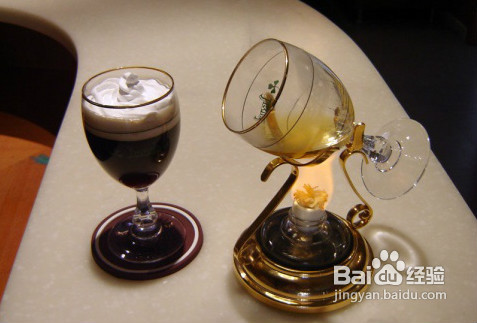Coffee Manor in Nicaragua introduces boutique coffee beans in Joy Manor.
After the armed intervention of the United States and the Sandinista Zelaya came to power, some social reforms were carried out while brutally suppressing political enemies. Because of his restrictions on American capital, the United States instigated the Conservative Party to launch a coup that forced Zelaya to resign in 1909, and the regime was controlled by the Conservative Party. In 1912, opposition to the Conservative Party broke out in Nicaragua. In the struggle of the Diaz government, the United States sent Marines to intervene. In August 1914, the United States signed the Brian-Chamorro Treaty with the conservative government of Nicaragua, which acquired the right to supervise Nicaraguan affairs and to build a canal in Nicaragua. The Cohen Islands in the Gulf of Fonseca and the Caribbean were leased in 1999 as a naval base. The invading American troops remained until 1925, and Nicaragua effectively became a protector of the United States. In December 1926, J.B., leader of the Liberal Party. In order to fight against the Conservative regime, Sakasha set up a constitutional government on the east coast. In order to support the Conservative government, the United States immediately sent Marines to land in Nicaragua. The Nicaraguan people in the outstanding national hero C.A. Under the leadership of General Sandino, a large-scale national liberation movement against US imperialism and domestic reactionaries was carried out, forcing the US military to withdraw from Nicaragua in January 1933. The United States was not reconciled to defeat and instigated the commander of the National Guard A. Somocha Garcia murdered Sandino on February 21, 1934. Somocha family dictatorship and the 1979 revolution in May 1936 Somocha Garcia launched a coup that forced President Sakasha to resign, seized the presidency in January 1937, and began the dictatorship of the Somocha family. In 1944, the Somocha faction split from the Liberal Party and formed the National Liberal Party, which had long controlled the Parliament and became a tool for the Somocha family to exercise dictatorship. During the reign of the Somoza family, he used state power internally to accumulate wealth for the family, brutally exploited and squeezed the people, and suppressed all democratic and progressive activities; externally, he followed the United States. it not only implements economic protection and preferential policies for the United States and other foreign monopoly capital, but also intensifies military collusion to turn Nicaragua into a vassal of the United States and a base for suppressing the national liberation movement in Central America. Nicaraguan coffee, it is best to drink a sip of cold water, so that you can better feel its mellow taste. Drink coffee while it is hot, because the tannins in Nicaraguan coffee are easy to change during cooling, and the taste becomes sour, which will affect the flavor of the coffee. You can add the right amount of sugar, and then add cream. Enjoy a cup of high-quality Nicaraguan coffee, you can not only experience the different levels of coffee taste, but also help to improve the ability to appreciate coffee.
Coffee is Nicaragua's main export. According to the president of the Nicaraguan Coffee Farmers' Federation, due to the poor harvest of coffee in Nicaragua's Pacific region, the country's total coffee production in 1998 may be 12% lower than that in 1997. In the 1997-1998 coffee year, Nicaragua harvested a total of 1.422 million bags (46kg per bag) of coffee, the best harvest in 14 years after coffee production hovered around 1 million bags. It is estimated that the income from coffee exports in 1998 will be about 1.6 billion US dollars, and Nicaraguan coffee production will drop sharply. Wei Kailei coffee is Nicaragua's main export product. According to the president of the Nicaraguan Coffee Farmers' Federation, due to the poor harvest of coffee in Nicaragua's Pacific region, the country's total coffee production in 1998 may be 12% lower than that in 1997 and 1998.

Important Notice :
前街咖啡 FrontStreet Coffee has moved to new addredd:
FrontStreet Coffee Address: 315,Donghua East Road,GuangZhou
Tel:020 38364473
- Prev

Introduction to Valenford Manor in Jamaica Blue Mountain Coffee Flavor
Blue Mountain Coffee is one of those coffee retailers that value credibility to stock some coffee no matter what. A leading British retailer said: regardless of the price, he will continue to sell Blue Mountain coffee all year round because he has many customers who only recognize Blue Mountain. Now, 90% of the post-harvest Blue Mountain coffee is bought by the Japanese. In 1992, Jamaica sold 688 tons of Blue Mountain Cafe to Japan.
- Next

Nicaraguan Coffee Bean introduction Los Congo Manor Nicaraguan Coffee Manor
Nicaragua | Nicaraguan Coffee Nicaragua coffee Nicaraguan Coffee beans w.kaf.name "Nicaragua is one of the major coffee producing countries and produces high quality coffee. Even coffee from the Antigua Mountains of Guatemala, which is famous in Asia, imports raw beans from Nicaragua. Nicaraguan coffee is not well known in Asia, but in fact, Nicaraguan coffee is already
Related
- Does Rose Summer choose Blue, Green or Red? Detailed explanation of Rose Summer Coffee plots and Classification in Panamanian Jade Manor
- What is the difference between the origin, producing area, processing plant, cooperative and manor of coffee beans?
- How fine does the espresso powder fit? how to grind the espresso?
- Sca coffee roasting degree color card coffee roasting degree 8 roasting color values what do you mean?
- The practice of lattes: how to make lattes at home
- Introduction to Indonesian Fine Coffee beans-- Java Coffee producing area of Indonesian Arabica Coffee
- How much will the flavor of light and medium roasted rose summer be expressed? What baking level is rose summer suitable for?
- Introduction to the characteristics of washing, sun-drying or wet-planing coffee commonly used in Mantenin, Indonesia
- Price characteristics of Arabica Coffee Bean Starbucks introduction to Manning Coffee Bean Taste producing area Variety Manor
- What is the authentic Yega flavor? What are the flavor characteristics of the really excellent Yejasuffi coffee beans?

